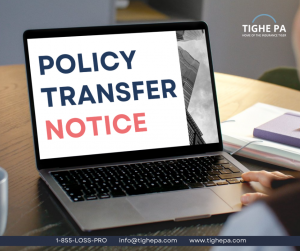Florida’s property insurance system has been in turmoil for years. Hurricanes regularly cause billions in losses, insurers pull out or collapse, and premiums soar higher than anywhere else in the nation. To keep homeowners and condo associations insured, the state created Citizens Property Insurance Corporation in 2002.
Citizens was supposed to be a last-resort option — coverage available only when private insurers weren’t. Yet over time, it has grown into the largest property insurer in Florida, with more than 1.3 million active policies. And with that growth has come a troubling shift: Citizens has leaned heavily on arbitration clauses that funnel policyholders out of open court and into private proceedings.
The results speak volumes. In arbitration, Citizens prevails about 90% of the time. In court, where independent judges and juries weigh the evidence, the insurer loses more than half of its cases. That gap raises the fundamental question: has arbitration become a tool to deliver fairness, or a mechanism that cements Citizens’ advantage at the expense of Floridians?
Numbers That Redefine the Playing Field
Statistics don’t always tell the whole story, but here they reveal a sharp imbalance. Arbitration has become the venue where Citizens thrives — while courtrooms remain the place where policyholders are far more likely to win.
For Florida families or associations facing storm repairs that can run into the millions, the venue often determines the outcome. Enter arbitration, and the odds tilt steeply against recovery. Step into court, and suddenly the balance shifts toward a fairer contest.
The divergence between these two tracks illustrates why arbitration matters so much. It’s not simply a matter of efficiency — it’s about control.
Understanding Arbitration — and Its Trade-Offs
Arbitration is often sold as a streamlined alternative to litigation. Instead of presenting evidence before a jury or a judge, disputes are decided by an arbitrator, usually in a matter of weeks rather than months.
But for policyholders, the trade-offs are steep:
- No jury of peers. Only one individual decides the outcome.
- No appeal process. Once the arbitrator rules, the decision is final.
- No public record. Proceedings are confidential, leaving no precedent for future cases.
These losses matter. Public trials not only resolve individual disputes but also create case law that shapes how insurers handle claims across the board. Arbitration removes that safeguard, isolating each case and making it harder to track patterns of denial or underpayment.
Why the Scales Tip Toward Citizens
Part of the problem lies in how arbitrators are chosen and compensated. Citizens contracts and pays them directly, raising immediate concerns about independence. Even if arbitrators strive for neutrality, the financial tie creates what legal scholars call a “repeat player” effect: those who routinely rule against the insurer risk being passed over for future work.
The setup fuels skepticism. Can policyholders really expect a neutral hearing when the decision-maker depends on the insurer for business?
On top of that, Citizens has been known to settle cases strategically — offering partial payouts that make arbitration results appear balanced. In practice, these payments often fall well short of actual repair costs, but they allow the insurer to argue that homeowners “won” something.
Ripple Effects for Policyholders
The implications of this system go well beyond legal technicalities. Arbitration can mean:
- Condo boards imposing sudden special assessments, straining residents on fixed incomes.
- Families accepting partial payouts, leaving their homes only partially repaired.
- Contractors losing projects when insurance money doesn’t cover full restoration.
And the imbalance doesn’t stop at individual cases. Consumer advocates warn that as arbitration becomes more common in Florida insurance policies, it could reshape the entire market — limiting access to courts for millions and weakening consumer protections at scale.
The Bigger Picture: Florida’s Insurance Crisis
Arbitration is just one piece of a broader puzzle. Florida’s insurance market is already in crisis. Premiums are the highest in the U.S., carriers continue to go insolvent, and Citizens has expanded far beyond its original mandate.
The larger Citizens grows, the more influence its arbitration system exerts. Millions of Floridians now find themselves bound by clauses they often didn’t notice when signing their policies — clauses that lock them into a process they cannot easily escape or challenge.
This is more than a legal issue. It’s a structural shift in how risk and responsibility are shared in Florida’s housing market. The more Citizens dominates, the more arbitration becomes the default way claims are resolved.
Pressure for Reform
In Tallahassee, lawmakers are split. Insurers argue that limiting lawsuits keeps premiums from rising even higher, pointing to “frivolous” litigation as a driver of costs. Consumer advocates counter that restricting court access gives insurers unchecked leverage — particularly troubling when the insurer is state-backed.
The Florida Legislature has already held hearings on insurance reform where arbitration surfaced as a point of contention. Meanwhile, national watchdog groups warn that mandatory arbitration clauses in consumer contracts consistently erode accountability.
Proposals on the table include:
- Making arbitration optional rather than mandatory.
- Requiring clearer disclosure of arbitration provisions in policies.
- Establishing an independent panel of arbitrators, unconnected to Citizens, to restore neutrality.
None of these measures have yet passed, but the momentum is growing as more Floridians find themselves disadvantaged by the current system.
Where Florida Goes From Here
The future of Florida’s property insurance market may hinge on how the arbitration issue is resolved. If Citizens’ approach goes unchecked, more policyholders will be funneled into a process with little transparency, no appeal, and odds stacked against them. If lawmakers and regulators intervene, arbitration could be reshaped into something more balanced — or limited in scope.
Either way, the stakes are high. With storms growing stronger and insurers pulling back, Citizens’ influence will only expand. And with it, so will the consequences of the system it controls.
A Better Path for Policyholders
Insurance is meant to offer peace of mind: a guarantee that when disaster strikes, help will be there. Arbitration, as Citizens currently uses it, erodes that guarantee. Instead of fairness, it delivers a process built for speed and efficiency that consistently favors the insurer.
Floridians deserve better. They deserve a dispute system that puts them on equal footing, restores transparency, and ensures accountability. Until reforms are enacted, the most effective protection is knowledge — and strong advocacy.
At Tighe P.A., led by Dan “The Insurance Tiger” Tighe, we stand exclusively with policyholders. We work to challenge unfair denials, expose systemic imbalances, and push for a fairer process. For homeowners, condo associations, and communities across Florida, the message is clear: you don’t have to face this system on your own.
Relevant Resources and Citations
- Florida Office of Insurance Regulation (OIR). Quarterly and Annual Reports on Property Insurance Market Conditions. Available at: https://www.floir.com
- Miami Herald. (2024). “Citizens Insurance, Arbitration, and the Florida Property Insurance Crisis.”
- Tampa Bay Times. (2025). “Forced Into Arbitration: How Florida’s Largest Insurer Stacks the Deck.”
- Economic Policy Institute (EPI). Colvin, A. J. (2018). “The Growing Use of Mandatory Arbitration.” Washington, DC. Available at: https://www.epi.org
- American Association for Justice (AAJ). (2021). “Forced Arbitration: The Corporate Get-Out-of-Jail Free Card.” Available at: https://www.justice.org
- National Consumer Law Center. (2023). “The Cost of Arbitration: How Mandatory Clauses Harm Consumers.” Available at: https://www.nclc.org
- Insurance Information Institute (III). Florida Property Insurance Market Updates. Available at: https://www.iii.org
You May Also Like:
- The $112,500 Mistake: Why Coinsurance Can Gut Your Commercial Claim
- Insurers Say “We’ll Fix It” — But Right to Repair Could Cost You Thousands
- When the Insurer Picks the Judge: The New Reality for Florida Property Owners
- Patriot Select Takes Over 12,000 Citizens Policies—But Can Florida’s Newest Insurer Weather the Storm?


